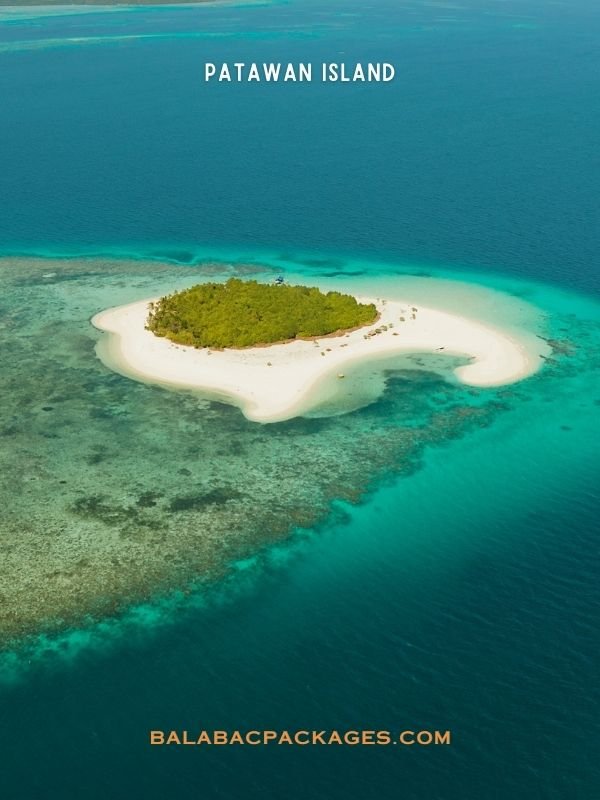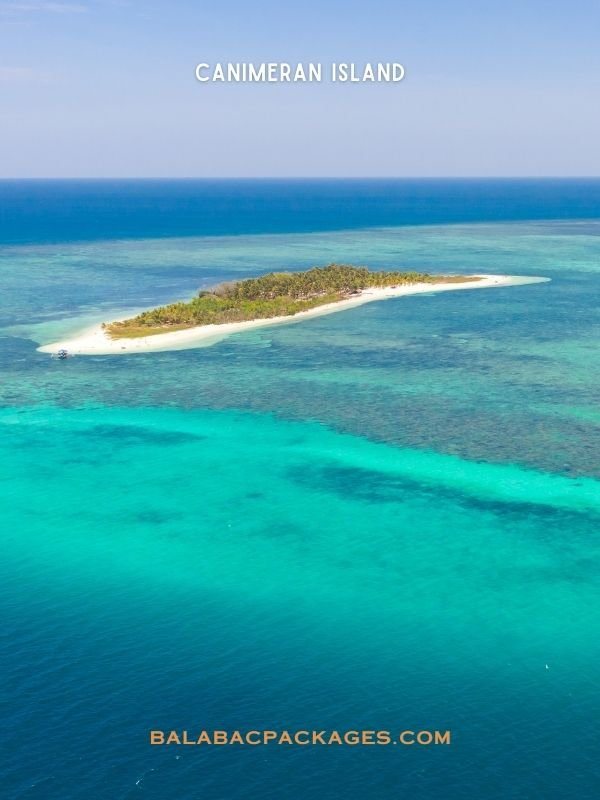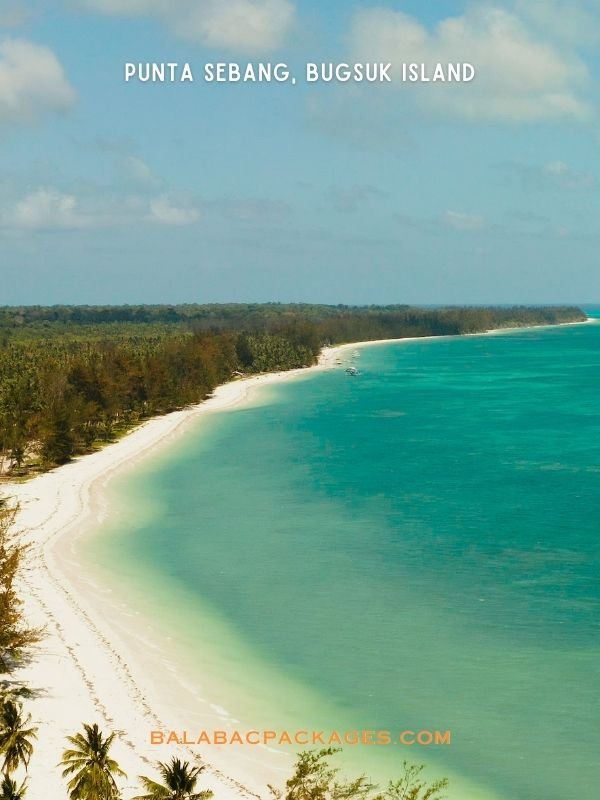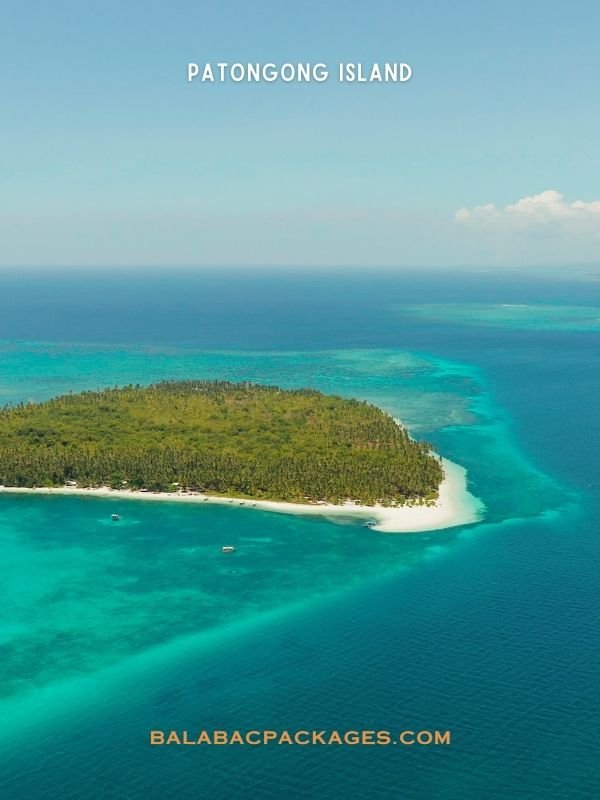Balabac Attractions: Explore Palawan Island, Philippines (2025 Guide)
2D/1N, 3D/2N, 4D/3N, 5D/4N, 6D/5N, 7D/6N, 8D/7N, and Private/Customized Packages by D’Palawan Travel and Tours
Lorem ipsum dolor sit amet, consectetur adipisicing elit, sed do eiusmod tempor incididunt ut labore et dolore magna aliqua. Ut enim ad minim veniam, quis nostrud exercitation ullamco laboris nisi ut aliquip sunt in culpa qui officia deserunt mollit laborum. Lorem ipsum dolor sit amet, consectetur adipisicing elit, sed do eiusmod tempor incididunt ut labore et dolore magna aliqua. Ut enim ad minim veniam, quis nostrud exercitation ullamco laboris nisi ut aliquip sunt in culpa qui officia deserunt mollit laborum.

Why Book a Balabac Tour Package? Essential Tips for Exploring Palawan Islands, Philippines
Entering the Outer Reaches of Palawan
Palawan’s reputation often precedes it—peppered throughout glossy magazines and travel vlogs as the “world’s best island.” Yet within this broad province lies an under-explored nook known as Balabac, an archipelago bridging the southwestern tip of the Philippines. Pronounced “bah-lah-bak,” this cluster of islets presents a raw, unvarnished brand of tropical splendor: pale, sandy beaches, mangroves teeming with biodiversity, coral reefs hosting schools of fish, and a smattering of rural villages upholding age-old traditions. Unlike El Nido or Coron, Balabac has not undergone heavy tourism development. For travelers who covet isolated shorelines and offline immersion, it’s a prime candidate for discovery.
Paradoxically, what makes Balabac enticing can also render it challenging. Aside from the notable absence of banks, stable power, and digital connectivity, the region has minimal lodging infrastructure, patchy phone reception, and boat schedules that shift with the wind. While it’s feasible to “wing it” in many Philippine destinations, Balabac penalizes unpreparedness. The next boat might not be available for days, or you might land on an island only to find no rooms left if you failed to plan ahead. As such, tour packages remain a logical solution, consolidating every facet of remote island logistics into a more coherent framework.
In the comprehensive account that follows, we explore the mechanics of planning a Balabac getaway: how to time your bookings, what daily life on the islands looks like, the interplay of local culture and nature, and why partnering with an experienced tour operator drastically elevates your experience. We also address ways to engage respectfully with Balabac’s communities and ecosystems, honoring local norms while safeguarding the region’s pristine landscapes. By absorbing these insights, you position yourself not only to handle the complexities of Balabac but to revel in the archipelago’s tranquillity and unique enchantments.
Reservation Strategy: The Crucial Window
Seven Days in Advance: The Gold Standard
If you’re accustomed to spontaneously booking short-haul trips, Balabac will demand a shift in approach. Because the region is distant from city centers and reliant on infrequent boat runs and generator-based electricity, a recommended standard is to finalize your booking at least a week before setting out. Why?
-
Boat Coordination: Each day, Balabac’s small pool of boat operators juggles passenger runs, reef tours, supply trips, and local errands. Early reservations ensure you can tap into their schedules before they fill up.
-
Meal and Accommodation Prep: Fresh produce arrives intermittently from the mainland, meaning local hosts must plan carefully for each group’s food needs. A week’s lead time helps them secure chicken, seafood, or veggies according to your dietary requirements.
-
Secure, Consistent Rates: Late requests tend to prompt surcharges, as operators scramble to charter private vessels or special fuel deliveries. Book ahead to keep costs predictable.
Plan B: Three Days for Last-Minute Decisions
Sometimes, life (or your travels around Palawan) doesn’t let you lock things in a full week prior. If that’s the case, aim for three days as your cutoff. This interval still grants local agents or operators enough space to rummage for resources and, hopefully, piece together a workable journey—though your lodging or boat picks may be more limited, and you might pay a slightly higher premium for expedited arrangements.
Why Balabac is Both Dreamy and Daunting
Balabac remains largely free from commercial hustle. No extensive lines of restaurants, no pulsating nightlife, and no major chain hotels. The archipelago’s hallmark is its natural serenity, but that calm has a price:
-
Electricity Constraints
In most localities, electricity flows for only a short block of time, typically after sunset. Battery-powered devices and power banks are indispensable, especially if you rely on cameras or phones. -
Unstable Weather Patterns
Situated at Palawan’s southern fringe, Balabac is susceptible to abrupt climate swings, from squalls that stir up choppy waters to scorching midday heat. A sunny morning might devolve into an afternoon deluge, dictating last-second plan revisions. -
Offline Realities
Internet and phone signals appear sporadically, if at all. This environment can be liberating for those seeking a “digital detox,” yet disconcerting if you rely on constant connectivity. Mental preparation for near-zero data coverage helps forestall anxiety about being “off-grid.”
The Edge of Practicality: Why a Tour Package Simplifies Life
Contending with Logistical Hurdles
Balabac’s brand of isolation intensifies everyday travel concerns. You aren’t just hailing a local taxi or booking a ferry on an app. Instead, you might combine a four-to-six-hour van ride with a one-hour boat crossing on an outrigger, culminating in nights at an island lodge that relies on generator power. A tour operator can streamline these puzzle pieces:
- Transport Bundling: From the time you leave Puerto Princesa’s city proper until you step onto your chosen Balabac island, the operator arranges each vehicle, boat, or seat.
- Meal Provisioning: In remote communities, food availability can pivot on local fishing success or supply vessel arrivals. Packages guarantee you don’t face meager choices if a market happens to be sold out of staples.
Exploiting Local Know-How
A quality package adds intangible value: insider knowledge. Agency staff often have spent years fostering trust with boat captains, village elders, or local families who run homestays. This rapport eases unanticipated complications, like urgent boat repairs or sudden lodging reassignments. The deeper the agency’s local network, the smoother your stay, as they can quickly pivot around Balabac’s frequent curveballs.
Financial Realities: Cash, More Cash, and No ATMs
Balabac stands as a purely cash-based microeconomy. If you fail to carry enough pesos, you won’t magically find an ATM behind a coconut tree. Even using credit cards is impossible, as few, if any, merchants accept them. Meanwhile, individuals running modest island stores or fish markets usually can’t break large bills. By bringing an abundance of smaller denominations—like PHP 50 or 100—you’ll handle minor purchases (bottled water, souvenirs, quick snacks) without difficulty.
- Budget Sufficiently: Tally your daily potential spending—tips for boat crews, extra tours, unplanned food runs, souvenirs—and then bring extra.
- Splitting Funds: Should you lose your primary wallet or have it soaked on a boat, having a backup stash in a waterproof pouch is prudent.
- No Credit Solutions: In dire emergencies, you might rely on the goodwill of fellow travelers to lend money, but that’s an unreliable gamble.
Gear and Essentials: Maximizing Comfort in Rugged Conditions
-
Energy Sources
Electricity blackouts are standard. Therefore, high-capacity power banks (10,000 mAh or higher) are crucial if you frequently use a camera or phone. Some visitors opt for small solar chargers, though reliable charging depends on consistent sunlight. -
Clothing and Footwear
Light, breathable, quick-dry shirts and shorts are the norm. A compact rain jacket can be a godsend during sudden downpours. Rubber sandals or water shoes help you scramble across rocky shores or wade through tidal flats without injury. -
Toiletries
To preserve local water sources and reduce pollution, consider biodegradable soaps or shampoos. Also pack tissues or biodegradable wipes for personal hygiene—stocking up in Puerto Princesa, because you won’t find them in remote Balabac shops. -
First-Aid Kit
Must-haves include motion-sickness tablets (boats can rock heavily), antiseptic cream for cuts, band-aids, allergy medication, and, if needed, personal prescriptions. Prompt medical assistance might be hours away, so you need to handle routine scrapes or stomach upsets independently.
Navigating the Route to Balabac
Van Transfers from Puerto Princesa
Most Balabac journeys launch in Puerto Princesa, Palawan’s capital. Here, you’ll board a van typically arranged by your tour agency. The ride south can extend up to six hours, partly due to pickups along the way or road sections under repair. Bring water and small bills for possible rest-stop snacks. Expect only minimal bathroom amenities at roadside stops.
Boat Ride into the Archipelago
Upon reaching Buliluyan (or sometimes Rio Tuba), you’ll shift to a motorized bangka. The crossing from the mainland to your first island can range from 30 minutes to over an hour. Rely on the crew’s discretion for safe departure times. Seas can be calm early in the morning, but might turn tumultuous if a sudden weather system blows through. Dry bags and waterproof phone pouches are indispensable here.
Flexibility: The Core Mindset for Balabac
Balabac’s environment grants you a front-row seat to nature’s spontaneity. Plans for island hopping can evaporate if a strong gust makes the water unsafe, or if your assigned boat is commandeered to deliver supplies to another community. A prepared traveler interprets these shifts not as nuisances, but as part of the broader tapestry of Balabac living. In a place steered by wave and wind, adaptability is not just a virtue—it’s survival strategy.
Cultural Immersion: Balabac’s Heartbeat
Understanding Local Communities
Balabac features pockets of settlements, many comprising fisherfolk who rely on daily hauls for subsistence. Some areas integrate Muslim practices, particularly along the southwestern corridor, while others blend Catholic traditions or indigenous customs. You may pass small mosques or chapels on your walks, so maintain a respectful demeanor:
- Dress Appropriately: When strolling beyond the beach, consider wearing a shirt or cover-up if you’re in a bikini or swimming trunks. This modesty fosters mutual respect.
- Polite Interactions: Greetings in Tagalog (like “Magandang umaga,” meaning “Good morning”) or respectful gestures can warm up your exchanges. People here are often eager to share stories if approached kindly.
- Photography: Always ask for consent if you want to photograph local individuals or private spaces. Cultural and personal sensitivities apply.
Balabac Cuisine
Meals often highlight what the sea or immediate farmland supplies: grilled fish, boiled or fried crabs, occasional pork or chicken, and fresh fruit or vegetables subject to availability. Steamed rice is omnipresent. If you have strict dietary preferences—like vegetarian or Halal-only—confirm well in advance; Balabac’s limited markets might not carry specialized products. You can bring supplementary goods from Puerto Princesa if you have specific needs.
Securing Souvenirs
A handful of islanders may craft shell-based ornaments, wooden carvings, or woven goods. Supporting these micro-entrepreneurs is a tangible way to boost community livelihoods. However, be cautious with coral souvenirs or items that appear to involve endangered wildlife. Such purchases contribute to ecological harm and violate local and international regulations.
Environmental Mindfulness: Sustaining Balabac’s Future
-
Marine Sanctuary Care
Snorkeling or diving in Balabac can reveal diverse corals and fish. Touching or kicking corals can devastate years (if not decades) of growth. Maintain buoyancy, avoid chasing marine life, and never anchor on a reef. -
Waste Minimization
Plastic pollution is among the top threats to oceanic ecosystems. Stick to reusable containers for water and snacks. If you generate any trash (like snack packaging), keep it until you return to a place with proper disposal. -
Respectful Distance
Whether it’s observing sea turtles near their nesting grounds or glimpsing rare bird species in a mangrove, keep a respectful gap. Resist the temptation to feed or lure animals for a closer look. -
Coral-Friendly Sunscreen
Traditional chemical sunscreens containing oxybenzone or octinoxate can bleach and harm corals. Opt for reef-safe brands to lessen your personal environmental footprint.
Accommodation: Simple, Organic Living
-
Huts and Lodges
Most Balabac lodging is rudimentary: wooden stilt huts with palm leaf roofs or block structures offering minimal furnishing. Electricity from a generator typically powers a single lightbulb and possibly a fan. Don’t count on air conditioning or hot showers. -
Generator Hours
Because fuel costs run high, generators may operate only from early evening until midnight (or later, if you’re lucky). Charge essential electronics in this window. Once the generator stops, immerse yourself in the night’s stillness, occasionally punctuated by geckos chirping or the ocean’s gentle roar. -
Sanitary Conditions
Showers often involve a large water container, a bucket, and a small ladle for pouring water over yourself. Bring quick-dry towels and personal toiletries. Tolerating these conditions can feel easier when you remind yourself you’re stepping into a genuine island lifestyle, free from the usual urban footprints. -
Local Homestays
Some families accept guests, offering a basic bedroom or sleeping space on mats. You’ll eat alongside your hosts, possibly sampling local cooking styles. Though your privacy may be limited, it’s an intimate way to learn about daily life—from how fish is dried to how families handle generator schedules.
Handling the Unforeseeable
-
Sudden Weather Shifts
If an impending storm dashes your original plan for island-hopping, your guide might suggest indoor or village-based activities: a lesson in weaving coconut leaves, assisting with fish preparation, or trading stories with local kids. Engaging in these improvisations can lead to surprisingly meaningful memories. -
Mechanical Glitches
Bangkas can face engine troubles. Spare parts aren’t always on hand, so a quick fix might not exist. Tour operators frequently secure alternative boats if you must press on, or they’ll adjust the schedule to accommodate repairs. Such real-time flexibility underscores why traveling solo without a local network can be risky. -
Cancellations and Refunds
Because local suppliers rely heavily on advanced fees, cancellations within a short notice often forfeit payments. Familiarize yourself with your operator’s policies before placing a deposit. If you’re uncertain about your travel commitments, consider flexible flight arrangements or trip insurance that covers unforeseen changes.
Balancing Adventure and Safety
Heeding Local Expertise
Boat captains in Balabac accumulate wisdom by traversing these waters daily. If they state the route is too rough or an island’s shoreline seems too rocky to land safely, respect their call. They know wave patterns intimately. Overriding local guidance for a personal agenda can end in mishaps or injuries.
Personal Precautions
Though your group may include a guide, do remain aware of your own limitations and surroundings. Keep valuables locked in waterproof bags. If you explore an unfamiliar portion of an island, bring a buddy or notify others of your location. The remote character of Balabac magnifies the difficulty of rescue if something goes awry.
Insurance Nuances
Given the shortage of well-equipped medical facilities in Balabac, injuries requiring advanced care typically necessitate evacuation to Puerto Princesa or beyond. A robust travel insurance plan that covers remote rescue and transport can offset enormous costs. Review coverage details meticulously—especially exclusions relating to water sports or adventure travel.
Money Matters: Tour Payments and On-Site Expenses
-
Full Payment Before Departure
The majority of operators in Balabac mandate settling tour fees prior to leaving Puerto Princesa. This practice offers financial security for local providers. Once you arrive in Balabac, recovering unpaid balances becomes extremely difficult due to patchy connectivity. -
Budgeting for Extras
Tour packages usually bundle accommodations, meals, and standard boat rides, but optional add-ons—like special fish requests or extended visits to less accessible sandbars—might cost extra. Clarify these charges beforehand so you’re not caught off-guard. -
Tipping Etiquette
Tipping in the Philippines, though not mandatory, is appreciated. A few hundred pesos to your boat crew or the cook who diligently prepared your meals can foster goodwill. Carry small notes for this purpose.
Potential Delays and Plan Shifts
-
Drawn-Out Van Journeys
A tire blowout, road construction, or impromptu stops to drop off cargo can all elongate your schedule on the mainland. As a result, your predicted departure by boat might slip from midday to late afternoon. Rather than fret, use the downtime to glean local anecdotes from the driver or admire the roadside scenery. -
Marine Conservation Regulations
Some villages announce seasonal bans on fishing or tourist presence at certain reefs if they observe signs of overuse or breeding cycles. If your itinerary is disrupted, treat it as an investment in future biodiversity. That protected reef might be even more abundant when you return or for others who visit after you. -
Community Practices
Village-specific events—from religious gatherings to harvest festivals—may momentarily close off segments of the beach or request quieter behavior. Embracing these cultural rhythms can provide a peek into the communal spirit that keeps Balabac’s islands thriving.
The Transformative Nature of Balabac Travel
Venturing into Balabac frequently feels like stepping into an older era, removed from the digital noise that pervades daily existence in cities. Even a brief stay can recalibrate your sense of time. You might discover hours of tranquil reflection in a hammock, lulled by waves; or nights spent mesmerized by phosphorescent plankton in shallow waters. Moments like these highlight why so many visitors view Balabac not just as an itinerary stop but as a pilgrimage to raw beauty.
Reconnecting with Simplicity
Whether you’re rinsing off saltwater with a bucket shower or savoring freshly grilled fish cooked on the beach, life here encourages you to appreciate each daily ritual. Devoid of Netflix, Wi-Fi, or malls, evenings revolve around conversation, stargazing, or journaling. Travelers who initially struggle with this quiet often leave feeling they’ve reawakened a lost ability to be content in stillness.
Building Friendships
Group tours can spark new bonds, especially when adversity arises—like waiting out a sudden downpour in a cramped hut or helping each other steer a canoe. Local boatmen, if you show genuine interest, might offer a glimpse into their personal stories, such as how they weathered a past typhoon or their hopes for Balabac’s future. These relationships may last longer than the trip itself, marking a bridging of cultures and distances.
Why a Tour Package Ties the Strands Together
Balabac demands robust planning, yet the rewards justify it for those who approach it with the right attitude. A dedicated package lifts the burden of aligning vans, boats, and lodging; it mitigates the perils of traveling under prepared on an island chain with minimal fallback infrastructure. Instead, you gain:
- Security: The operator is responsible for last-minute hitches—like a broken boat engine or abrupt storms—coordinating solutions on your behalf.
- Cultural Insight: Through purposeful arrangements, you can partake in local customs without intruding or offending. Some packages schedule guided village tours, letting you meet artisans or observe fishing traditions respectfully.
- Sustainable Impact: Many tour operators strive for responsible frameworks—advising visitors on coral-safe practices, limiting plastic, and channeling economic benefits to local providers.
In essence, a well-designed package fosters a synergy of you, the traveler, and the communities that host you, ensuring that each side profits from the exchange rather than one overshadowing the other.
Rising to the Challenge and Reveling in Balabac’s Wonder
Embarking on a Balabac journey signifies more than just ticking another beach off your bucket list. It involves stepping into a domain characterized by minimal roads, ephemeral phone signals, and environmental rhythms that overrule human timetables. Such conditions challenge our contemporary beliefs about comfort and predictability. Yet, those who answer Balabac’s call—especially under the guidance of a reputable package—frequently discover that letting go of control can be cathartic.
They glean profound lessons on sustainability, encounter local traditions less diluted by global influences, and rediscover the art of patience amid wind-swept huts and luminous sea horizons. Where other destinations might hand you curated experiences in sanitized resort complexes, Balabac invites you to scale back and experience elemental living. Wake with the sunrise, bathe with a ladle, dine on fish caught hours ago, and close the day beneath skies dense with stars—each step reminding you how fulfilling it can be to live in closer harmony with nature.
By arriving armed with enough pesos, an unhurried spirit, and a willingness to adapt your plans at a moment’s notice, you’ll integrate smoothly into Balabac’s quiet pulse. A proper tour package amplifies these possibilities, deftly weaving logistical safety nets and forging paths for meaningful engagement. Ultimately, Balabac stands not merely as a “destination” but as an enduring lesson that tranquility persists where ecosystems remain healthy, communities remain welcoming, and travelers respect the fragile connections between land, sea, and human lives. You may leave Balabac, but something of its expansiveness and authenticity may live on in you, urging you to revisit or to protect similar havens worldwide.






